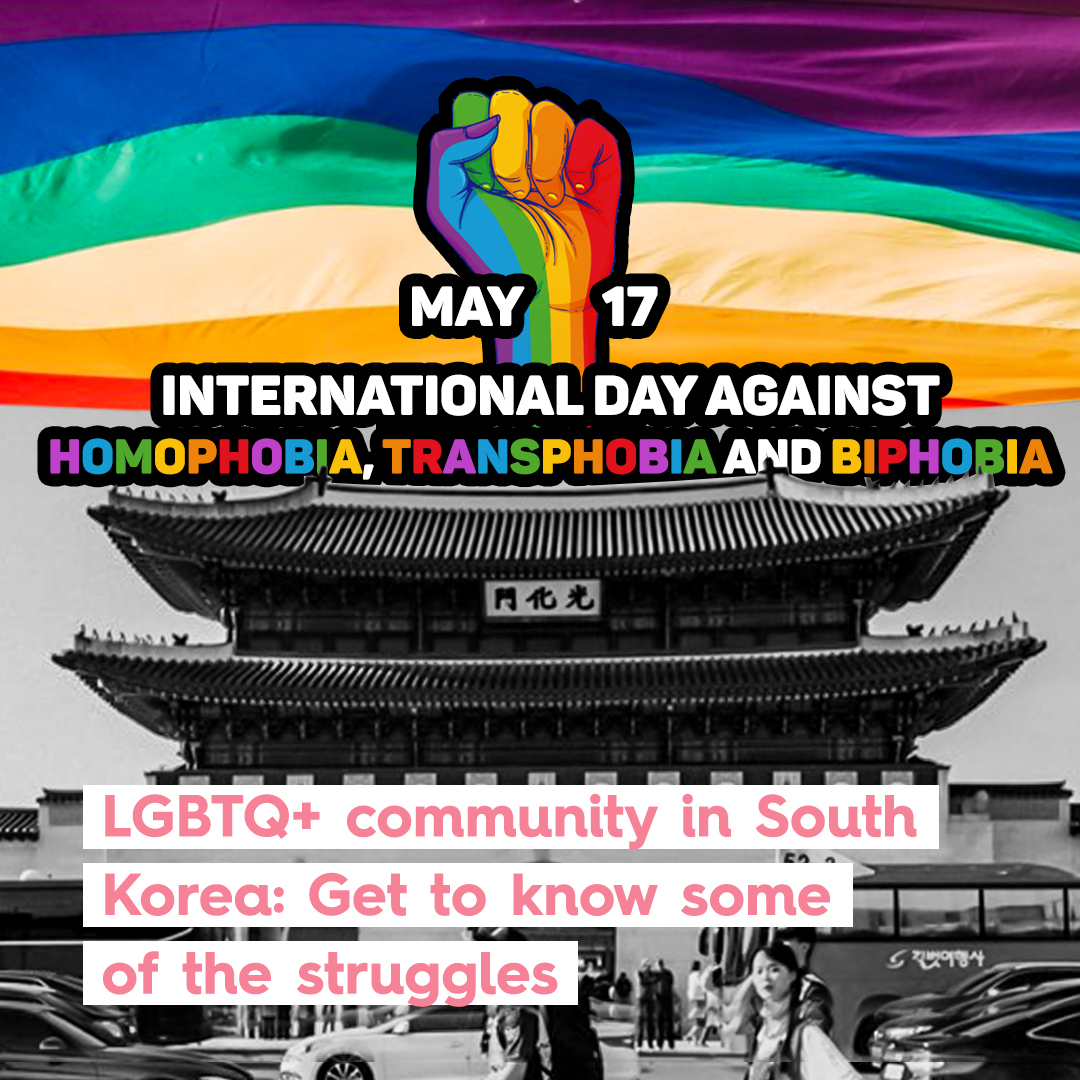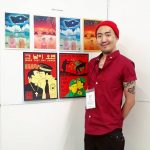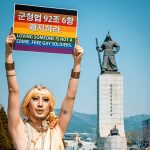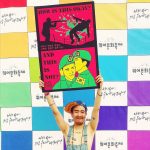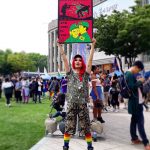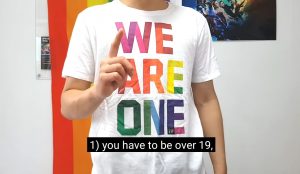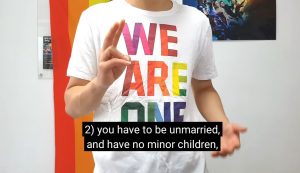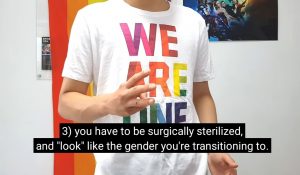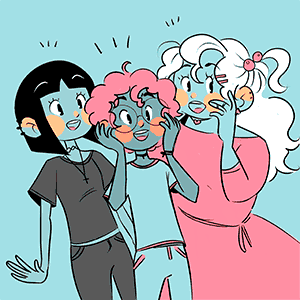The scenario of a traditionally conservative society – especially to non-Asian standards – may not be the ideal or the most welcoming for social minorities, but that does not prevent them from existing and resisting in this environment.
In South Korea, specifically, the struggle has become more present and widespread in recent years. We have seen, even if is from a distance, the increasing number of LGBTQ+ parades around the country, homo-affective couples expressing themselves freely – even marrying, despite the lack of recognition from the state – and a growing representation in the media.
But on this 17th of May, International Day Against Homophobia, Transphobia and Biphobia, we must also remember that it was not always like this and that a whole community of people had to face extremely difficult moments to reach this place of greater openness and major changes.
“I dealt with it [the process of understanding myself as a gay person] quite alright but I couldn’t tell anyone about me bei gay in my teens. Not to classmates, not to my family, because LGBTQ was just not even a thing in Korea then, “explains the artist and activist Heezy Yang.
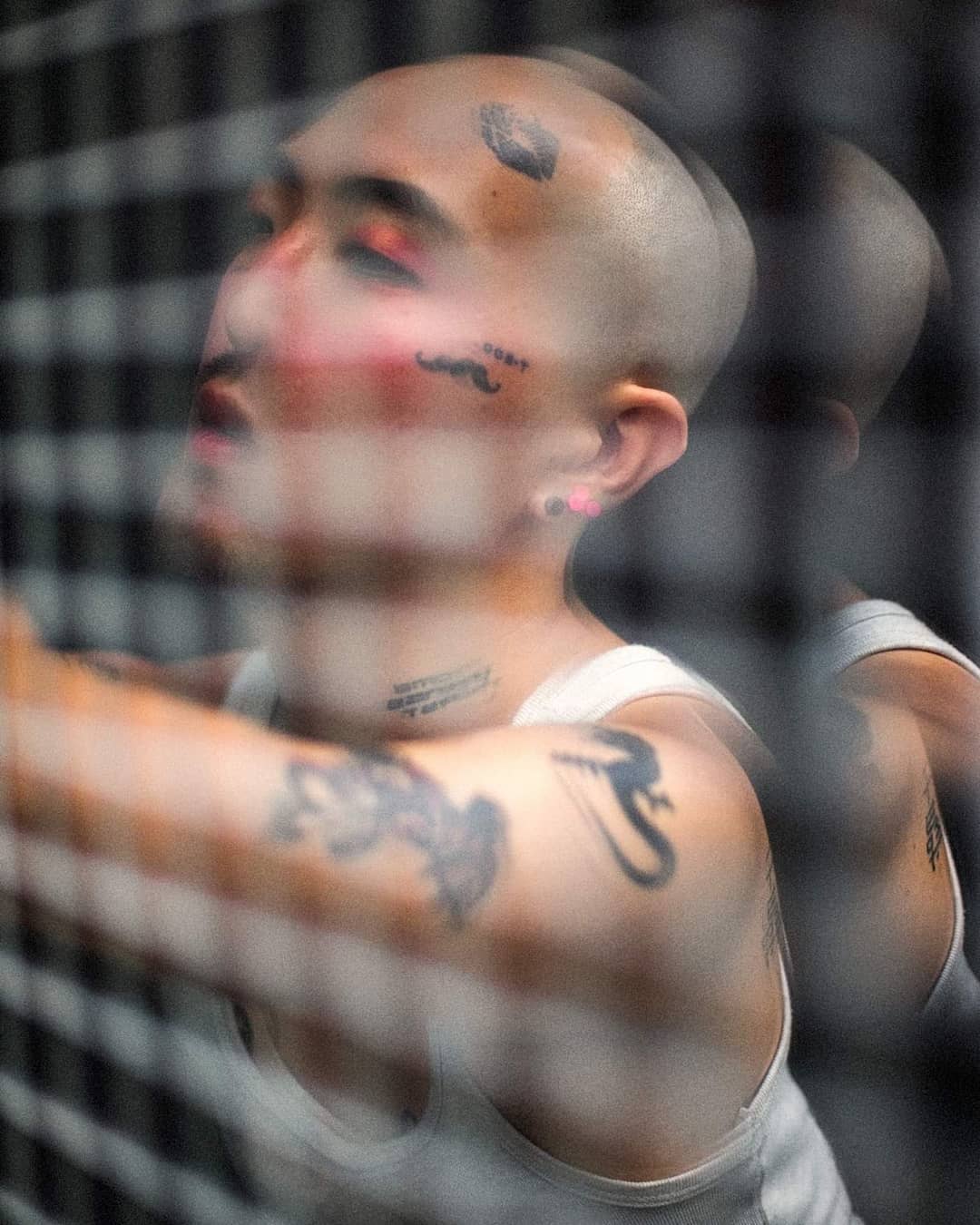
Heezy Yang
For him, there is no way to thank enough those who came before him and the younger generations, after all it was those people who worked so that today, the youngest can live with more freedom and can fight more safely.
Danger for the community inside the military service
Even the LGBTQ+ South Korean youth may find difficulties along the way. In the case of the men of the community, the danger can even be found in the mandatory military service. That’s because, although there is no criminalization law for same-sex relationships in Korea, Article 92-6 of the Military Criminal Act punishes sexual activity between men, with up to two years in prison.
“The military code does more than legislate against particular sexual acts; it institutionalizes discrimination, reinforces systematic disadvantages for gay, bisexual and transgender people and risks inciting or justifying violence against them inside the military and in the broader society,” explains Heezy Yang.
According to the activist, the persecution reaches the level of officers creating fake profiles in gay dating apps, to find these soldiers – making the military environment even more oriented by fear and threats.
Heezy characterizes the experience of military service as “traumatizing” for many – if not all – men in the community, and he himself does not feel completely comfortable to share the memories of his time in the military. Still, part of his work – both as Heezy Yang and Hurricane Kimchi, his drag queen – is dedicated precisely to fighting for a fair environment within the military and for the release of officers arrested for involvement with other men.
Women and the double objectification
While men are specifically targeted especially at military bases, women in the community also face gender-specific hazards in basically all environments. In addition to the feminist struggle, necessary to fight, among others, the large number of sexual crimes that victimize them, lesbian and bisexual women also suffer from the fetishization of lesbian relationships.
Lesbian couples who share their experiences on less restrictive platforms than the traditional South Korean media, for example, have been feeling it recently. And as thins kind of content growns among YouTube channels, more LGBTQ+ women are vulnerable to having their images exploited by a fetishist – and often male – sight.
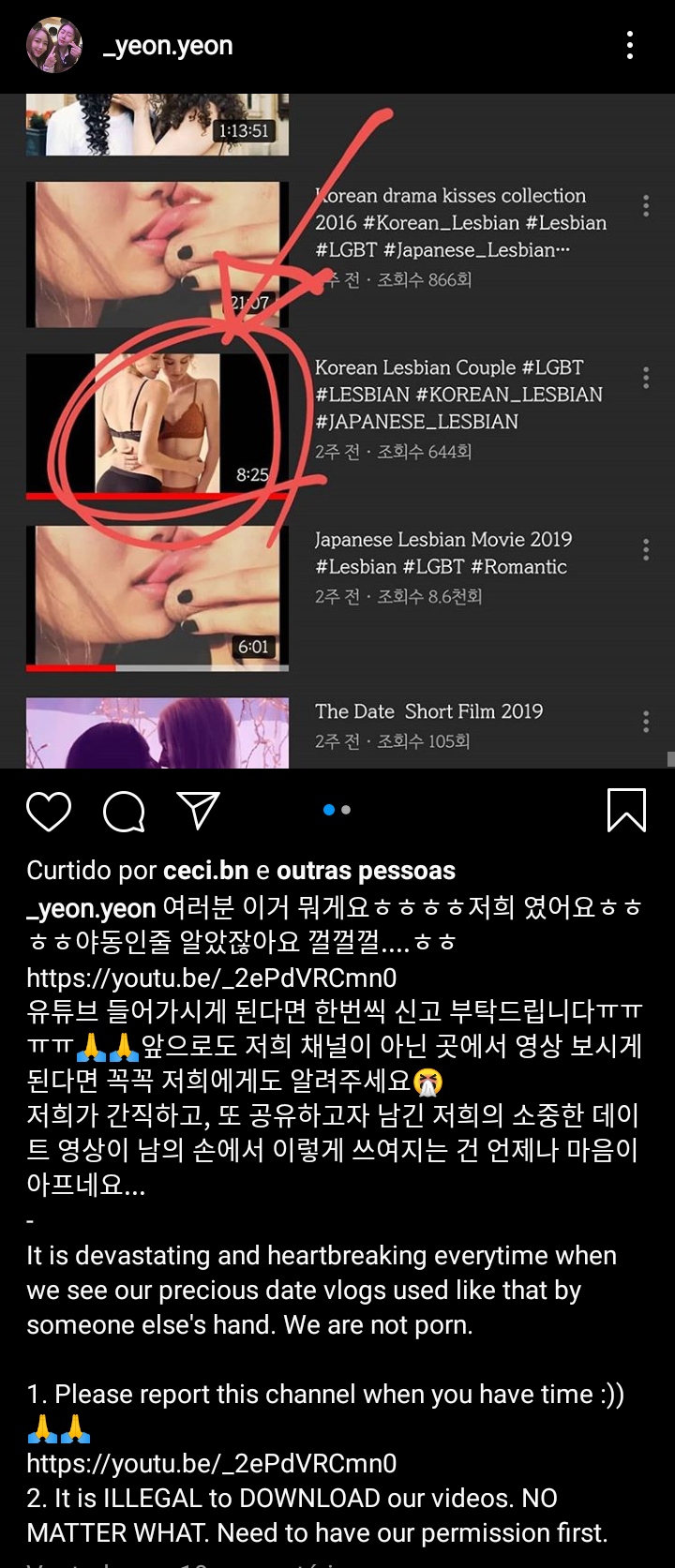
Youtubers couple denounces the unauthorized and decontextualized use of their content
The bureaucratic hassles of trans life
If the cis community already faces great difficulties, the situation for trans and non-binary people can be even more complicated. Just as there is no specific law to protect LGBTQ+ people in Korea today, there are also no laws specifically dedicated to transgender people and to guarantee their transition processes.
To change the gender marker in the documents, the person must go through a legal process, where the judge decides whether or not to allow the change. And even if the change is approved, the guidelines for someone to be recognized by the gender they identify with are, at the very least, controversial.
Instead of a legislation that protects and guarantees rights, the trans population is guided by the guidelines mentioned in this video by Youtuber Ryu, from the Ryu & Ray channel. The video also points out a major problem with these guidelines: the erasure of non-binary people.
According to the guidelines, the person must necessarily perform femininity or masculinity and identify with one of the two genders, ignoring those who do not identify with either of them.
In addition, the measures are highly restrictive and prevent married people, people with children and those with less than favorable financial conditions, from living their truths.
LGBTQphobia cases in the middle of Covid-19 crisis
In addition to the regular struggles, the LGBTQ+ South Korean community has faced, since last week, an even more punctual prejudice, this time involving the Covid-19 crisis.
A new growth in the number of infected – in the country that has been pointed out, all over the world, as an example of fighting the virus – was attributed, by local communication media, to LGBTQ+ nightclubs in the Itaewon. The media has also revealed the identity, age and place of work of some of these people.
By connecting LGBTQ+ people to such a dangerous virus, part of the media contributed not only to growing prejudiced statements, but also to creating a hostile environment for the entire local community.
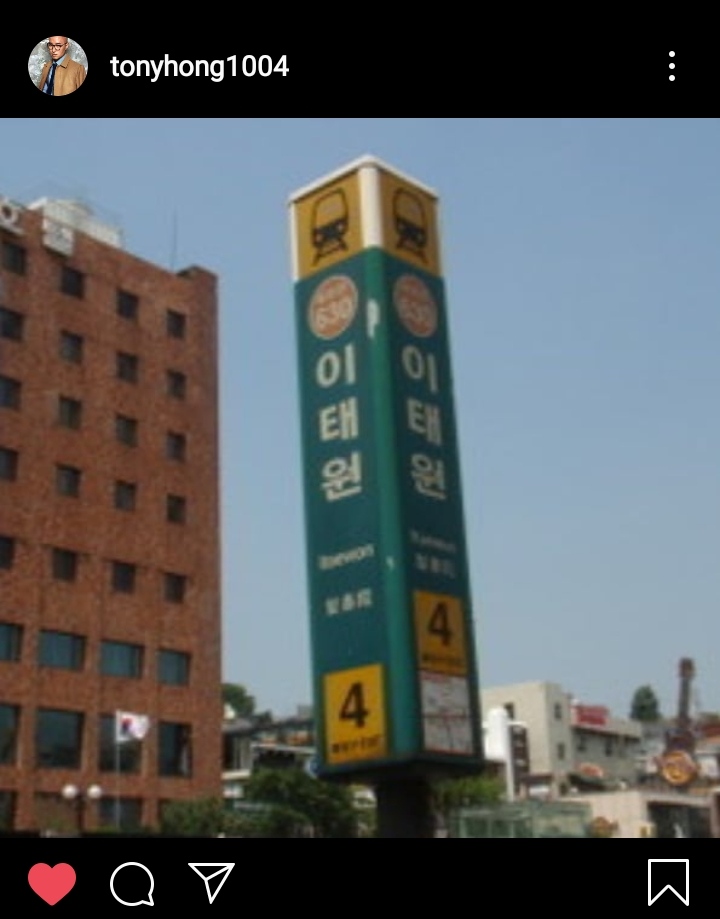
Tony Hong’s post summoning Itaewon goers to take the test
Another interviewer confessed that he needed an entire week to prepare for the virus detection test: “Finally, I was not infected but I cried when I received the message [with the test result], not because I was happy that I was not infected, but because I really hate being a gay man in this country. “
With the Covid-19 crisis still underway, Seoul’s LGBTQ+ parade, which traditionally takes place in June, is on hold and with no set date. The celebration can wait and the current moment is one of struggle, especially for LGBTQ+ communities all around the world.
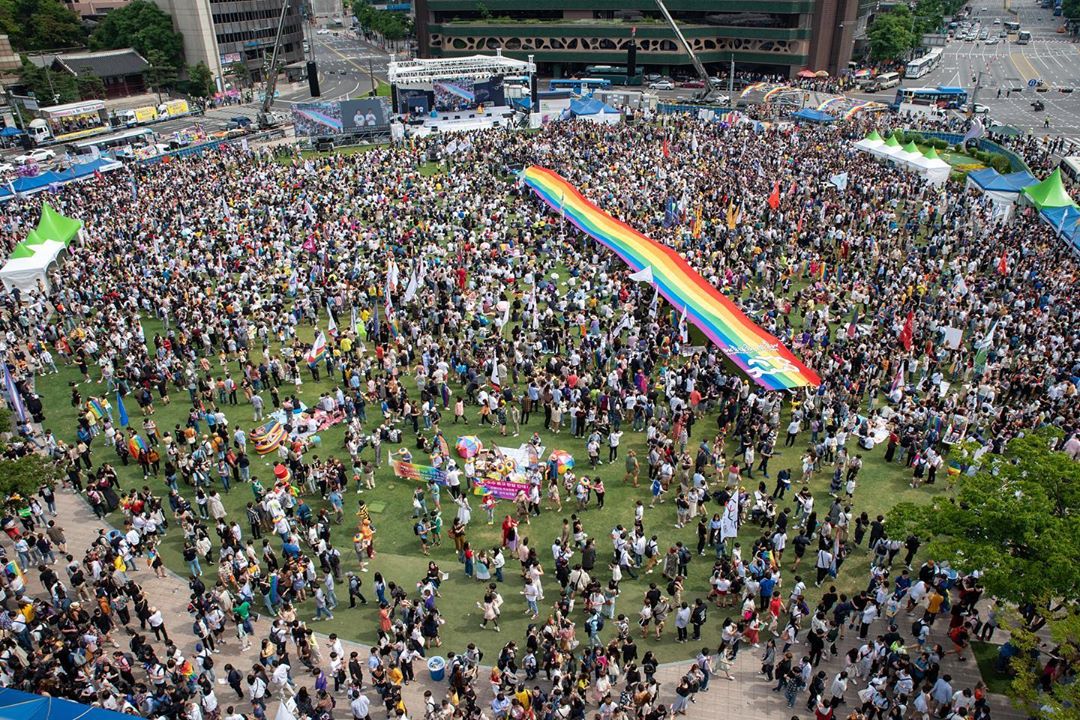
2019 Seoul Queer Parade © sqpexe
 Português
Português English
English 한국어
한국어